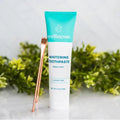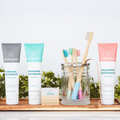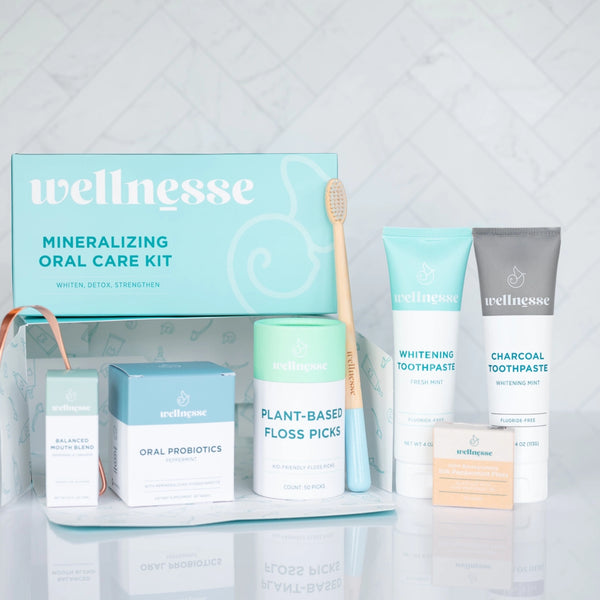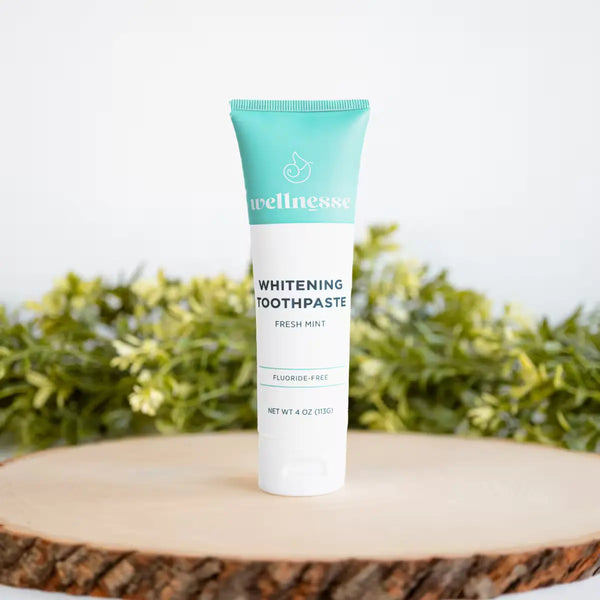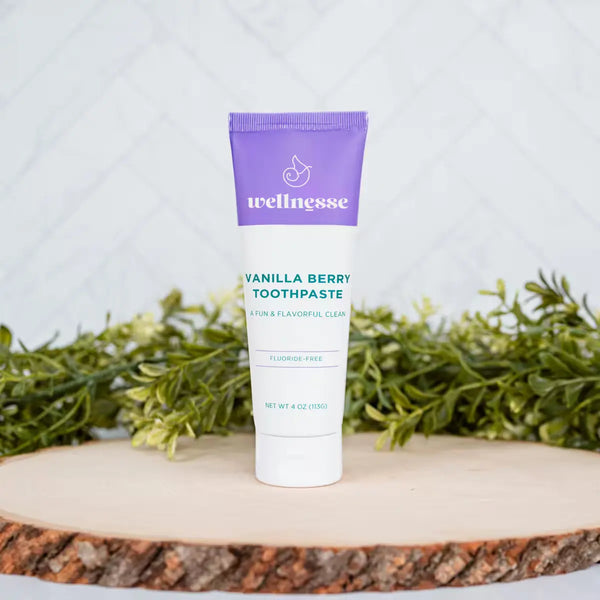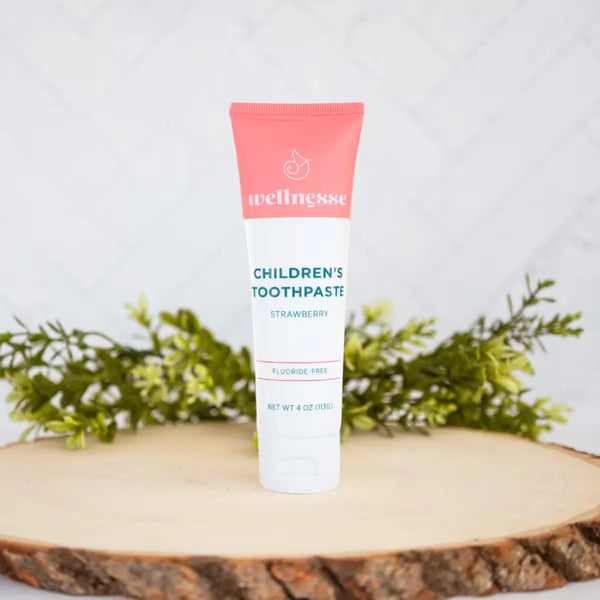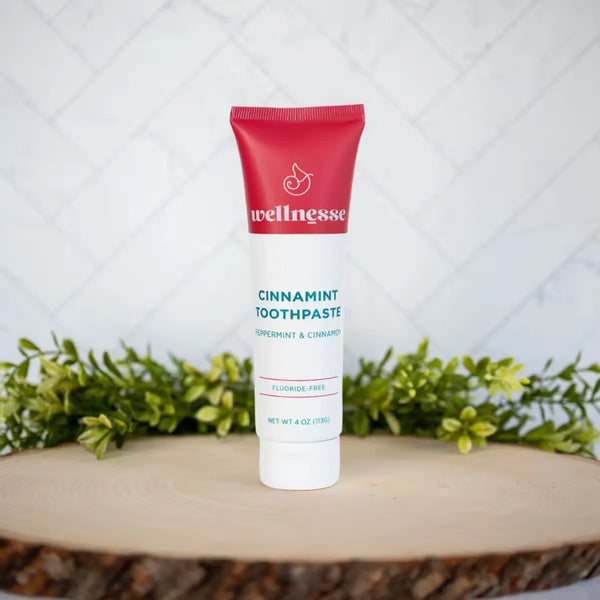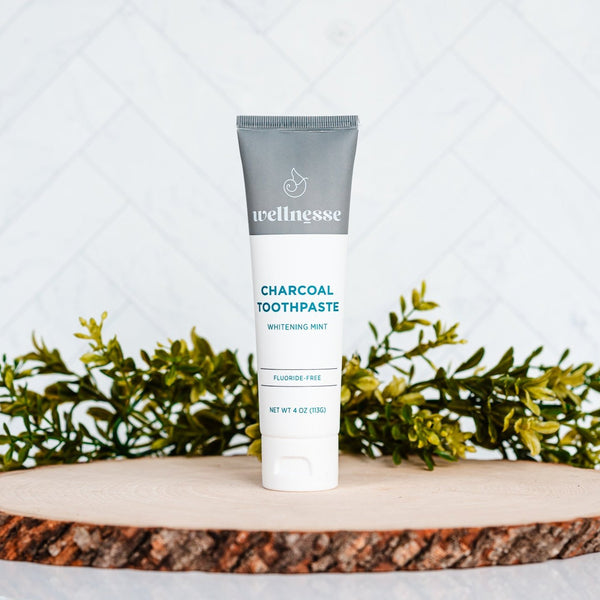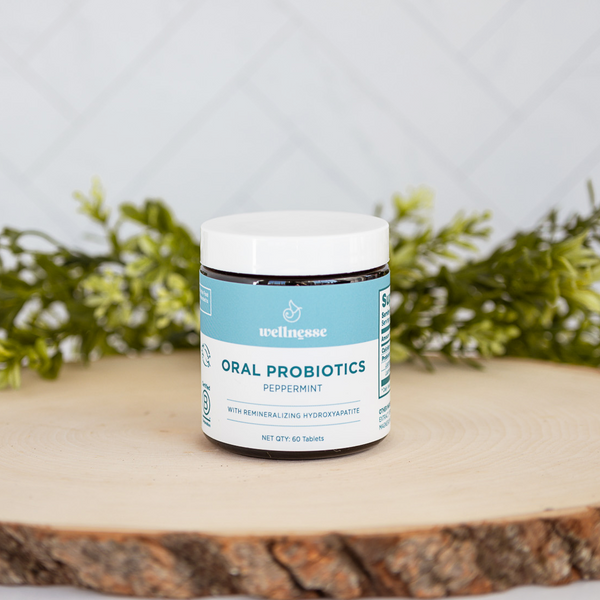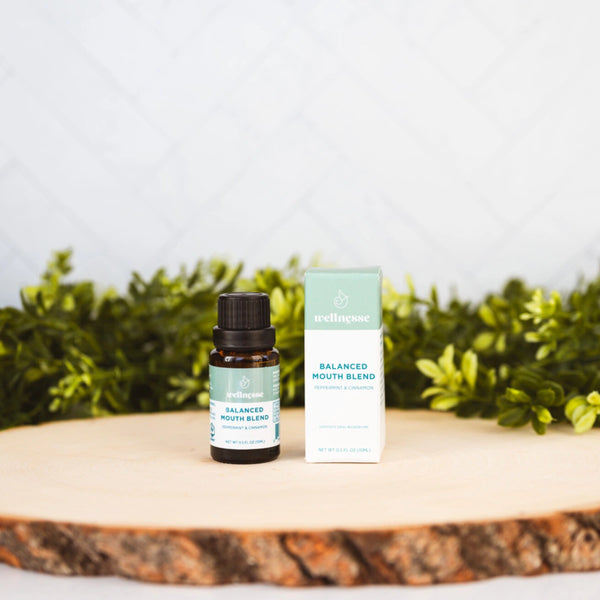If you include mouthwash in your daily oral care regimen, it's worth delving into the specific products and brands you're using. While advertisements promise minty, fresh breath and white teeth while killing germs, a deeper look into these products raises questions about the safety of the ingredients.
You may find it alarming to discover the harmful effects of numerous traditional mouthwashes. Many are laden with harmful substances like alcohol, synthetic flavors, dyes, parabens, and sulfates. And other ingredients may seem beneficial but aren’t, such as fluoride.
So, how can we safeguard our family's well-being by choosing the safest oral hygiene products? Let's take a look at common dangers and ingredients in conventional mouthwash.
Five Hidden Dangers of Conventional Mouthwash
When you pick up a bottle of mouthwash at the store, you're greeted with a laundry list of chemicals that aren't exactly ideal – things like alcohol, colorants, and artificial flavors, all of which can mess with your oral microbiome. Plus, the environmental impact can be harmful; using mouthwash daily means more plastic bottles ending up in landfills.
In a study from 2016, researchers found that mouthwashes containing synthetic chemicals could harm your teeth, gums, mucous membranes, and even your DNA. They strongly advise steering clear of conventional mouthwashes altogether.
Another study from 2023 revealed that certain chemicals in mouthwash can wipe out good bacteria while letting bad bacteria flourish. This disruption in your oral microbiome isn't just bad for your mouth – it can affect your overall health too.
Taking a closer look at conventional mouthwashes, it's clear they come with a host of negative side effects.
1. Destroys Our Oral Microbiome
Like our gut microbiome, we have an oral microbiome that’s a complex ecosystem of bacteria in our mouths. The alcohol and ingredients in conventional mouthwash can disrupt this balance and kill off the good bacteria that is necessary to break down food particles, fight harmful germs, and reduce acidity in our mouth.
If the balance of this microbiome is off, a range of oral health problems can appear. This can include bad breath, cavities, and gum disease (the very things we’re trying to avoid when we use mouthwash!).
2. Can Dry Out Your Mouth
Many types of mouthwash contain alcohol. Alcohol is very drying to the mouth, leading to a condition called xerostomia, or dry mouth. A dry mouth can also cause bad breath, tooth decay, and other oral health problems. It can also irritate any mouth ulcers you might have.
3. May Cause More Cavities Than It Prevents
Some studies show that long-term use of mouthwash can increase the risk of cavities. This is because some mouthwashes contain glycerin, which can leave a coating on the teeth. That coating can lead to plaque build-up and bacterial overgrowth. It can also prevent minerals from doing their job of remineralizing the teeth. This makes your teeth more vulnerable to decay and cavities. (This is also why the Wellnesse toothpaste does not use glycerin!)
4. May Raise Your Risk for Oral Cancers
Some studies have suggested that conventional mouthwash may increase the risk of oral cancers. This is because they contain alcohol, which can be carcinogenic. This 2017 study showed that alcohol in mouthwash is a known cause of head and neck cancers (such as oral cavity, pharynx, and larynx).
5. It isn’t That Effective Against Bad Breath
While mouthwash can help freshen breath in the short term, it doesn’t address the underlying causes of bad breath. Some types of mouthwash can make bad breath worse by drying out the mouth and killing off good bacteria.
Let's also talk a little about the ingredients you should avoid in your oral care products.
Common Mouthwash Ingredients to Avoid
These common ingredients are in conventional mouthwashes. Knowing what to look for and what to avoid will help you choose the best products for your family.
Artificial Colors and Flavors
Conventional mouthwashes often add blue or green dyes to evoke a feeling of minty freshness. But these days, mouthwashes aren’t just blue and green but a whole rainbow of colors like pink or even purple. While these may look appealing, artificial dyes can cause allergic reactions or hyperactivity in kids. They also pose other health risks and some are even linked to certain types of cancer.
Alcohol
Ethanol, the type of alcohol used in most mouthwashes, can cause burning and dryness. It can also aggravate some oral conditions as well as Sjogren’s syndrome, diabetes, or alcoholism. Alcohol destroys almost all the bacteria in your mouth, including the good bacteria. This can lead to an imbalance of bacteria and other unwanted side effects like bad breath.
Glycerin
This ingredient in mouthwash (and toothpaste) is used as a humectant to help lock in moisture in the mouth. It’s also often used as a sweetener to make the mouthwash more palatable.
Part of the problem with glycerin is that it’s often derived from GMO vegetable oils. These products can wreak havoc on your body, including your dental health and digestion. Some claim that it coats the teeth with a sticky coating that can prevent remineralization of the teeth. This can leave teeth more vulnerable to cavities and decay.
Fluoride
Fluoride has long been a topic in dental health. It’s a mineral that’s found in nature. Naturally occurring fluoride in drinking water can help mineralize bones and teeth as well as help prevent cavities.
The problem is that the fluoride that’s added to dental products and water is often synthetic fluoride, which isn’t as well tolerated by our bodies.
Fluoride can affect thyroid function, including decreasing TSH and increasing hyperthyroidism. Excessive fluoride exposure can discolor the teeth. In severe cases, it can weaken the tooth structure. Fluoride can also be toxic if ingested in very large quantities.
How to Choose Oral Care Products and Mouthwash
To protect your dental health, choose natural products made with beneficial ingredients. This includes toothpaste, floss, and mouthwash that are completely free of fluoride, glycerin, alcohol, parabens, and sulfates.

Wellnesse’s Balanced Mouth Blend is a concentrated mouthwash made with essential oils. These oils were chosen for their antibacterial properties and ability to freshen breath. It leaves your mouth feeling naturally revitalized and balanced and is a safe, effective, and balanced replacement for your conventional mouthwash.
Ingredients You Can Pronounce
There are no harsh or harmful chemicals in the Wellnesse Balanced Mouth Blend. Rather, the essential oils have been meticulously selected for their therapeutic benefits to your oral health. Each ingredient in the Wellnesse products is carefully selected and sustainably sourced. And we work to use only environmentally friendly packaging to help reduce waste.
We combine several powerful essential oils in this blend to support your family’s oral health:
- Organic peppermint oil - helps kill off harmful bacteria and freshen breath
- Organic oregano oil - contains antibacterial properties and boosts the immune system
- Organic clove bud oil - helps reduce gum disease, relieve bad breath, and soothe toothaches
- Organic cinnamon oil - known for its antibacterial properties and ability to freshen breath
These essential oils work with organic almond oil, manuka oil, organic myrrh and spearmint essential oils to freshen breath and combat harmful microbes.
How to Use the Balanced Mouth Blend
This concentrated mouthwash is gentle enough to use every day. And it’s simple to incorporate into your family’s daily routine.
Ways to use the Balanced Mouth Blend:
- Apply 2-3 drops to your toothbrush and toothpaste (or a clean toothbrush after brushing)
- Apply 2-3 drops to your floss to reach between the teeth
- Add 3-4 drops to a small amount of water for an alcohol-free mouthwash
- Add 4-5 drops to coconut oil for ayurvedic oil pulling
Because the formula is concentrated, you just need a few drops for great oral health.
Next Steps
The use of conventional mouthwash is a controversial topic in the dental and oral health community. While some studies suggest it can be harmful to your oral health, it is often highly recommended from your local dentist.
Remember that not all mouthwashes are created equal. To protect your oral health, choose natural oral health products that are free of harmful chemicals.
